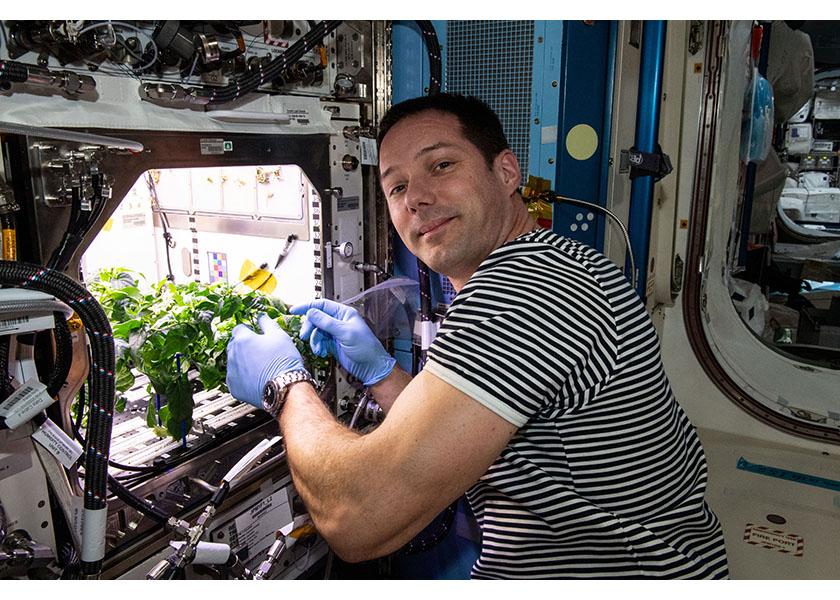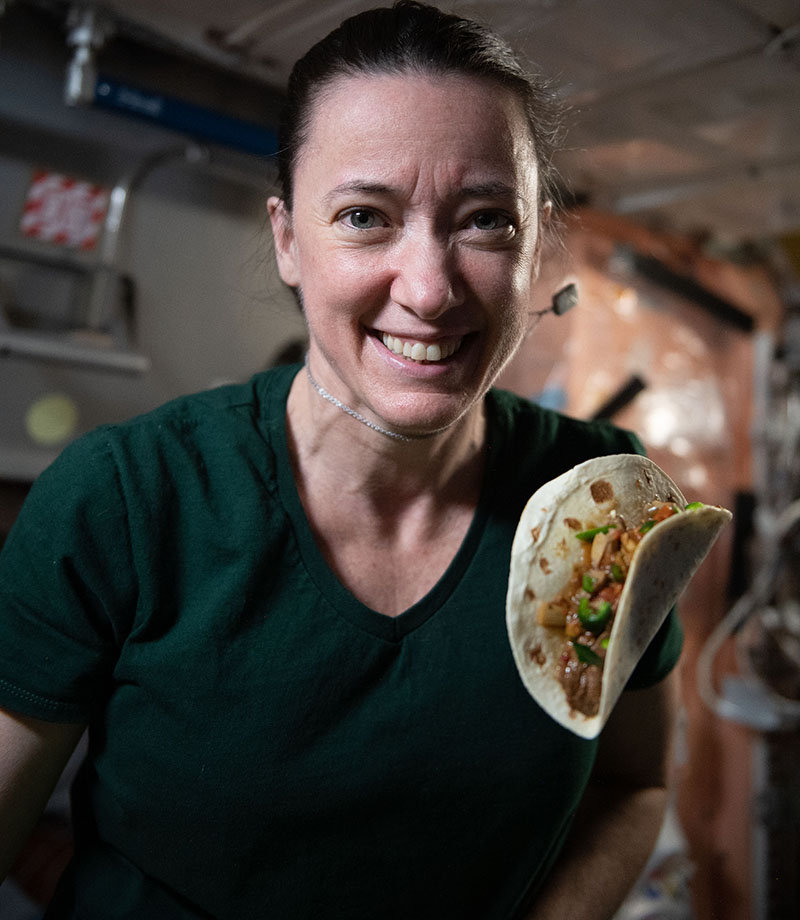NASA sowing seeds for space salsa

Extolling the benefits of fresh salsa, NASA scientists are working hard to bring Taco Tuesday to space.
Just imagine biting into a crisp tortilla chip with spicy salsa after weeks of nothing but ultraprocessed and freeze-dried meals, packaged in vacuumed sealed plastic pouches. The punchy, fresh flavor of a peppery salsa will wake up tired taste buds and galvanize spirits.
That’s exactly what NASA scientists are hoping to achieve with series of experiments dubbed the “thrive in space” trials. Scientists began growing and testing lettuce, tomatoes and pepper seeds in 2016 with the goal to develop technologies to grow, harvest and eat fresh vegetable favorites in space, supporting astronauts on long-duration space travel missions.
Related news: Future shines bright for organic research: Q&A with OFRF’s Brise Tencer
A recent win for the “thrive in space” trials was the NASA’s Plant Habitat-04 experiment, which successfully grew and harvested hatch chili peppers from seeds, arriving at the International Space Station aboard SpaceX’s 22nd commercial resupply services mission in June 2021.
“Growing colorful vegetables in space can have long-term benefits for physical and psychological health,” Matt Romeyn, principal investigator for the PH-04 experiment, said in a news release. “We are discovering that growing plants and vegetables with colors and smells helps to improve astronauts’ well-being.”
Growing hatch chilies for intergalactic salsa
A team with Kennedy Space Center’s Exploration Research and Technology programs planted the seeds in one of the three plant growth chambers nestled in an orbiting laboratory in which astronauts raise crops. The peppers grew for about four months before astronauts harvested the small, but mighty chilies. The chilies were chopped and enjoyed in a zesty, fresh salsa on tacos. It is the first time NASA astronauts have cultivated a crop of chili peppers on the space station from seeds to maturity, according to the release.
“The challenge is the ability to feed crews in low-Earth orbit, and then to sustain explorers during future missions beyond low-Earth orbit to destinations including the moon, as part of the Artemis program, and eventually to Mars,” Romeyn said in the release. “We are limited to crops that don’t need storage, or extensive processing.”
What’s more, crew members in space can lose some sense of taste and smell as a temporary side effect of living in microgravity, and they may prefer spicy foods or seasoned foods. Peppers are high in vitamin C and other nutrients, making peppers an excellent candidate for testing on the space station, Romeyn said.

Fresh vegetables for future missions
One outcome of the “thrive in space” experiments is the ability to cultivate edible plants may help support future Artemis missions at NASA. Together with commercial and international partners, the Artemis missions will establish a sustainable presence on the moon to prepare for future missions to Mars. According to NASA, the “thrive in space” experiments are building a knowledge base for scientists to understand how to cultivate plants beyond Earth’s atmosphere.
“The biggest challenge is the room you need to grow these edibles. Just to give you a general number, it would take about 50 square meters of soil to provide enough food for one person,” Howard Levine, space biology scientist with NASA's Biological and Physical Sciences Division, said in a news release.
“So, as we transport our crew members to Mars, the plants we grow will provide them with a token amount of their nutritional needs,” Levine added. “That said, there’s an often overlooked or minimized aspect to growing plants in space and that’s the psychological benefit to our crew members; they’ve often told us when they’re able to take care of the plants on board the space station, they really appreciate it as gives them a remembrance of what it’s like on Earth.”
Another added benefit to growing plants in space, according to Levine, is that they also suck up carbon dioxide, produce oxygen and purify any water that passes through them.







